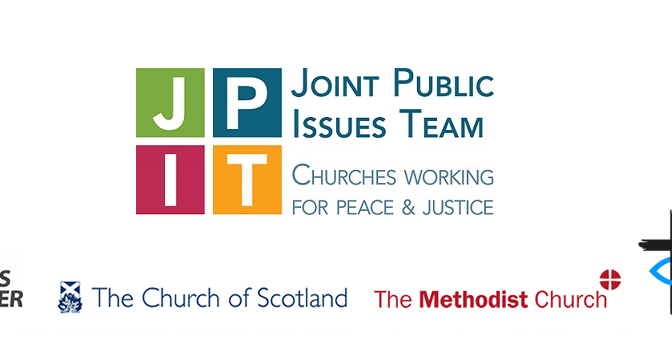
Discernment in public issues at election times
Joint Public Issues Team Blog 11.05.17
The other day I was talking to a Catholic Priest friend of mine about secular politics and the role of the Church at election times. He was sharing something about the Spiritual Exercises of St Ignatius of Loyola which resonated with me that might help us to avoid being co-opted unwittingly into political agendas.
Ignatius saw that true discernment requires an attitude of detachment, which is not a lack of interest, nor an unwillingness to engage with the subject matter, but is rather a positive state that seeks to recognise God’s will in any given situation. To be detached is to actively seek God’s will, neither owning one option or the other, but choosing to determine God’s desire, and to actively decide what will lead to God’s deepening life in each of us.
Every time we pray the Lord’s Prayer we ask that God’s “will be done, on earth as in heaven.” If we are to take this seriously, then we need to ask ourselves how we can truly seek God’s will in determining both the present and the future of our country. In other words, how might the UK better reflect the values of God’s Kingdom? What is it that God wants for us today? This desire to know God’s will for the nation should not be seen as selfish or insular, but as one which is in tune with a faithful reading of the “signs of the times”, one which is outward looking and recognises our place and role in the world.
The publication of the York and Canterbury Archbishops’ letter to Church of England clergy has caused a bit of a stir, primarily because of its focus on the word ‘stability’ – which reflects Theresa May’s campaign slogan of “Strong and Stable leadership”. Politically this has been perceived by some as either being naïve at best or at worst intentional. And so there has been a consequent backlash from those inside the C of E who are worried that it is becoming the Conservative Party at Prayer.
Last month writing on Conservative Home, Paul Goodman wrote: “This election gives Christian voters a chance to pitch out those who despise their values. Perhaps they should get organised – grade candidates, run websites, target those MPs they want out. After all, everyone else is doing so.”
While we all have political opinions, when the Church gets too involved or too close, it begins to lose the detachment that we need to discern God’s will. We run the risk of presenting our will as God’s will. Election campaigns make this ever more sensitive. Notwithstanding the fact that as registered charities the churches must abide by statutory guidance on impartiality, lobbying and campaigning, it is far more important that the Church sees itself not as any other kind of organisation weighing in on its priorities for manifestos or commitments from future MPs. The Church is not a lobby organisation for its own members. JPIT is not a think tank dreaming up policies and hoping to get noticed. We are all part of the movement of followers of Jesus Christ, our mission is to proclaim Good News to the poor and to worship God with all our heart, soul, mind and strength and to love our neighbour as ourselves.



